<< Previous | Displaying results 261-270 of 307 for "case" | Next >>
Ben was born in a small village in the Carpathian Mountains of Transylvania in Romania. When he was an infant, his family moved to the United States. Ben attended Harvard University, where he studied criminal law. Ben graduated from Harvard University Law School in 1943. He joined a US anti-aircraft artillery battalion that was training in preparation for an Allied invasion of western Europe. At the end of World War II in Europe, Ben was transferred to the war crimes investigation branch of the US Army. He…
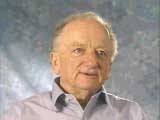
Henny was born into an upper-middle-class Jewish family in Kovno, Lithuania. She and her brother attended private schools. In June 1940 the Soviets occupied Lithuania, but little seemed to change until the German invasion in June 1941. The Germans sealed off a ghetto in Kovno in August 1941. Henny and her family were forced to move into the ghetto. Henny married in the ghetto in November 1943; her dowry was a pound of sugar. She survived several roundups during which some of her friends and family were…

The Mir ghetto was established in Mir, Poland in 1941. Learn more about life and resistance in the ghetto.
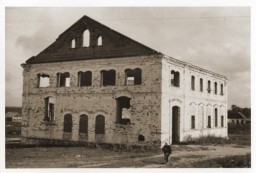
Learn about some of the origins of Holocaust denial, including the euphemistic language the Nazis used to describe their policies and actions.
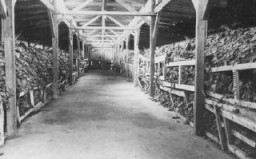
Shortly after taking power in January 1933, Adolf Hitler and the Nazis took control of German newspapers, detailing how the news was to be reported.
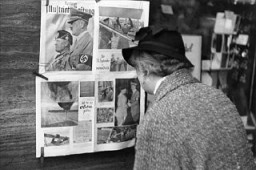
In 1944, Waffen-SS troops massacred residents of Oradour-sur-Glane, a small village in France. Learn about the German occupation and destruction of the village.
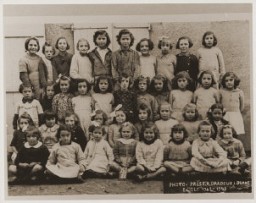
On November 8–9, 1923, Hitler and the Nazi Party led an attempt to overthrow the German government. This attempted coup came to be called the Beer Hall Putsch.
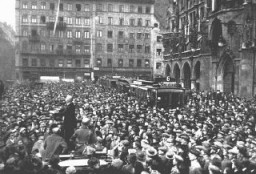
In March 1943, Bulgarian authorities transported the entire Jewish community of Monastir to a transit camp from which they were deported to Treblinka.
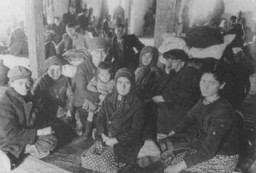
Listing of the 24 leading Nazi officials indicted at the International Military Tribunal at Nuremberg. Learn about the defendants and the charges against them.
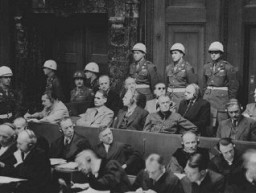
The Order Police (Ordnungspolizei, Orpo) were Nazi Germany’s uniformed police forces. They became perpetrators of horrific crimes and played a significant role in the Holocaust.
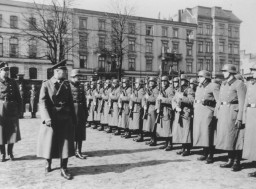
We would like to thank Crown Family Philanthropies, Abe and Ida Cooper Foundation, the Claims Conference, EVZ, and BMF for supporting the ongoing work to create content and resources for the Holocaust Encyclopedia. View the list of donor acknowledgement.